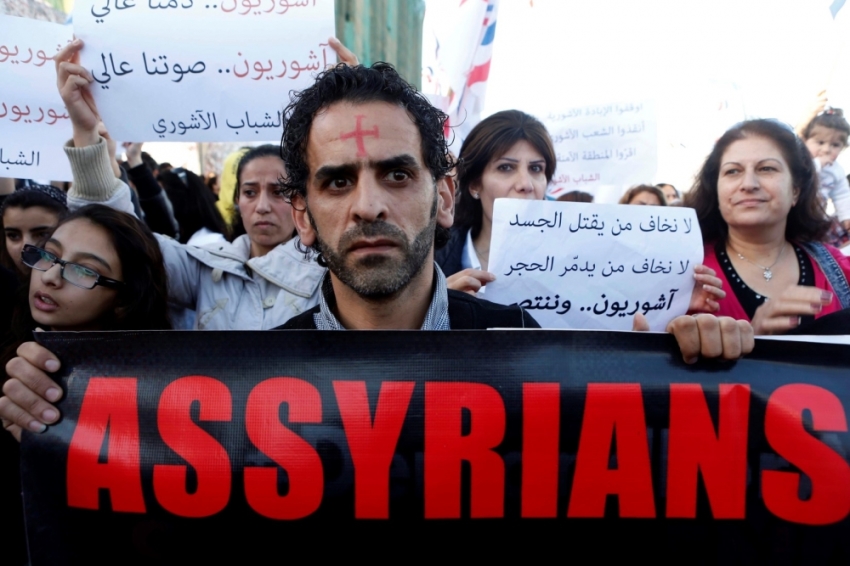ISIS Commits Mass Ethno-Religious Slaughter of Assyrian Christians as the World Ignores Genocide, Humanitarian Groups Say

At least 4,000 Assyrian Christian families are believed to be among the 120,000 people who in recent days have fled the Syrian city of Hassakeh. ISIS forces are entering the city and looking to carry out a mass ethno-religious slaughter, humanitarian groups said, warning that the world still has not provided an adequate response.
"Although we appreciated the efforts of the Republic of France for calling an emergency session of the Security Council last March to discuss the ongoing ethnic cleansing of Assyrian Christians, Yezidis and other ethno-religious minorities of Iraq and Syria, no action has yet been taken to halt this ongoing slaughter. It is as if the world community thinks that the situation will resolve itself if it's ignored," said David William Lazar, Chairman of the American Mesopotamian Organization.
Fides News Agency reported earlier this week that the 4,000 Christian families who have fled Hassakeh belong to various churches, including Chaldeans, Assyrians, Syrian Catholics and Syrian Orthodox, and have been seeking refuge in the nearby urban area of Qamishli.
Archbishop Jacques Behnan Hindo, the head of the Syrian Catholic Archieparchy in Hassakeh Nisibi, has also fled the city.
"The government army is currently gaining ground, with much difficulty, as fighting takes place in an urban environment. On the other hand, the Kurdish militias in the region have responded to the raids of Daesh [ISIS] only when the jihadists tried to attack the Kurdish districts, concentrated in the eastern part of the city. Until that moment the government had not provided support to the army," Hindo said.
The Archbishop warned that parts of the local population are sympathetic to ISIS, which has captured significant territory across Syria and Iraq. He said that a number of young men and adults have been seen siding with the terror group.
Hindo added that groups such as Caritas Syria are sending aid to the refugees at Qamishli, who are sleeping at makeshift camps, but the needs are increasing on a daily basis.
"Many sleep in the open, and the situation gets more and more complicated by the day, due to the unbearable heat," he said.
Lazar said in his statement that it is vital the U.N. Security Council take several steps to help protect Assyrians, Yezidis and other embattled minorities, namely with the establishment of interim safe-zones in key locations across Iraq and Syria for the refugees.
He also called for the training and financial support of independent indigenous security forces such as the Gozarto Protection Forces in North East Syria and the Nineveh Plain Protection Units in Northern Iraq; the deployment of UN peacekeepers; and further support for ground forces fighting ISIS across the region.
"We're renewing our call," Lazar said, " for the international community to come together and stop this continuing genocide against the Christians and Yezidis of Iraq and Syria. We are demanding that the world protects them just like it had previously protected the Muslim Kurds of Northern Iraq, the European Muslims of Bosnia and Kosovo, the Christians of East Timor and the people of Southern Sudan."
Meanwhile over 200 Assyrian Christians remain captured by terror group ISIS, taken from a raid on Assyrian villages back in February.
Though the Khabur river villages have since been liberated, the jihadists are believed to be asking close to $23,000,000 for the release of all 227 captive Assyrians, an amount which is impossible for families to pay.



























